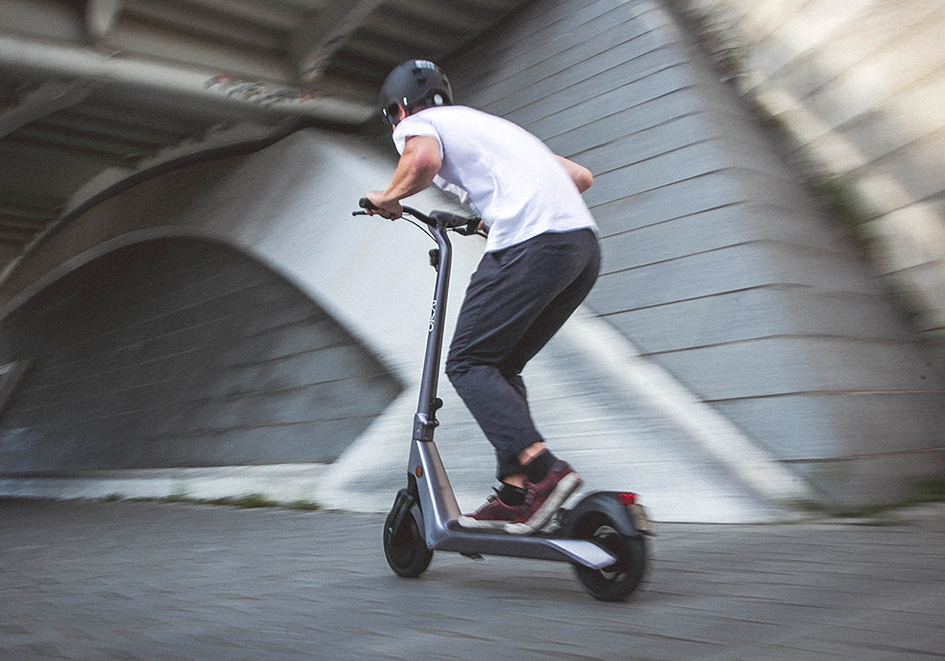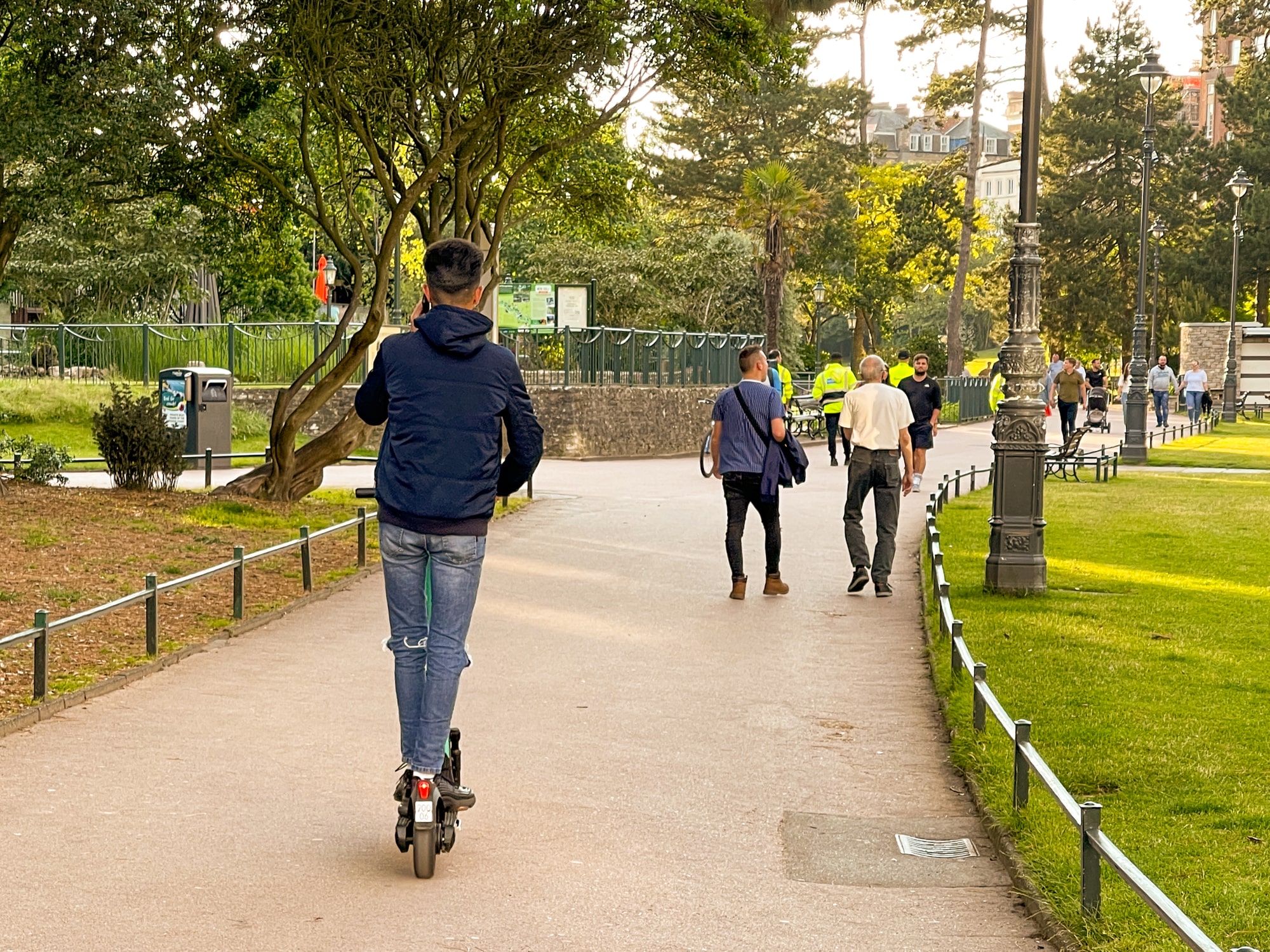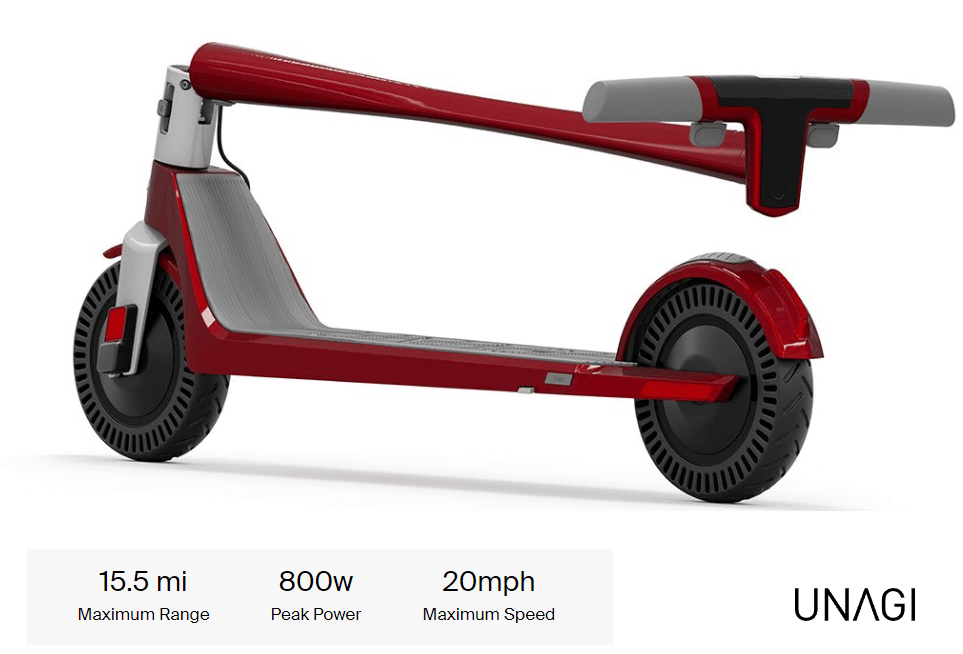Table of Contents
If you are an avid electric scooter fan, then you probably already know that privately-owned electric scooters are only legal in some countries and certain regions of each country.
So let’s get to the all-important question – Are Electric scooters legal in America?
The answer is yes; however, there are electric scooter laws you still need to know and follow, and each state has slightly different laws that you need to abide by.
Electric scooters are street-legal in the US, but you cannot simply hop on one without knowing and following the rules of the road. Unfortunately, traffic laws for e-scooters are not as clear to riders as they should be.
It can all become confusing as electric scooter laws differ from state to state. They don’t require riders to pass an e-scooter specific DMV test; people can get away with riding them without particular knowledge of motorised scooter laws. In this article, we will try and clear some of the confusion.
Rental electric scooters vs privately owned scooters
Electric scooters have taken the US by storm, especially public share rentals run by rental companies such as Bird, Lime and Spin. These rentals are authorised explicitly by particular city authorities. Rental electric scooters are highly regulated and have special permission to operate in certain states.
But what about if you want the convenience of owning and using your own electric scooter where you live or work? Unfortunately, the state of electric scooter law is only just beginning to emerge in the United States and varies from state to state and even city to city. To shed more light on the matter, let’s look at an overview of federal legislation.
Federal Consumer Law – Safety Standards
Under the HR 727 amendment of the Consumer Product Safety Act, “low-speed bicycles,” or “two- or three-wheeled vehicle with fully operable pedals and an electric motor of fewer than 750 watts, whose maximum speed on a paved level surface, when powered solely by such a motor while ridden by an operator who weighs 170 pounds, is less than 20 mph” is considered legal. While no equivalent law exists for electric scooters, it’s generally accepted for e-scooters to fall under this category.
E-scooters, therefore, are allowed on roads with or without bicycle lanes as long as they are running under 25 mph. Riders must stay close to the curb and follow driving and traffic rules like driving on the right side of the road, observing traffic signals, and yielding to pedestrians.
Remember that each state has its own set of laws governing the use of e-scooters on public roads. So, You will also need to familiarise yourself with these state-specific rules.

Where exactly are electric scooters “street legal” in the US?
Electric scooters are street-legal in 38 US states, while another ten states have deemed them not to be street-legal. While electric scooters are street-legal in a majority of the states, some states have applied different laws to where and how scooters can be operated while on public roadways.
Four of the states – California, Colorado, Massachusetts, and New York, do not allow scooters on highways, expressways, or limited-access roads due to most scooters not being able to reach safe enough speeds to keep up with the traffic.
Massachusetts, Connecticut, Indiana, Maine, and Virginia have added the stipulation that while scooters are street-legal, they must stay to the right side of the road while being ridden.
States where electric scooters are street-legal
-
Alabama
-
Alaska
-
Arizona
-
Arkansas
-
California (except freeways/expressways)
-
Colorado (except interstate or limited-access roads)
-
Connecticut (must stay to the right)
-
Georgia
-
Hawaii
-
Illinois
-
Indiana (must stay to the right)
-
Iowa
-
Kansas
-
Louisiana
-
Maine (must stay to the right)
-
Maryland
-
Massachusetts (except interstate or limited-access roads; must stay to the right)
-
Minnesota
-
Mississippi
-
Missouri
-
Montana
-
Nebraska
-
Nevada
-
New Mexico
-
New York (except interstate or limited-access roads)
-
North Carolina
-
North Dakota
-
Ohio
-
Oklahoma
-
Pennsylvania
-
Rhode Island
-
South Dakota
-
Tennessee
-
Texas
-
Utah
-
Vermont
-
Virginia (must stay to the right)
-
West Virginia
States where electric scooters are not street-legal
-
Delaware
-
Florida
-
Idaho
-
Kentucky
-
Michigan
-
New Hampshire
-
New Jersey
-
Oregon
-
Washington
-
Wisconsin

Can electric scooters be ridden on sidewalks?
Electric scooters can legally be ridden on sidewalks in only five states: Arizona, Iowa, Louisiana, Rhode Island, and Virginia.
While a majority of the states expressly state that scooters are not allowed on sidewalks, the laws in 19 states fail to mention sidewalk use at all. Many states consider electric scooter speeds to be too dangerous for sidewalks where pedestrians, bicyclists, or even the scooter users themselves could be injured in an accident.
States where scooters can legally be ridden on sidewalks
-
Arizona
-
Iowa
-
Louisiana
-
Rhode Island
-
Virginia
Rules for streets
You will find that in almost all cases, scooters are not allowed on high-speed streets (streets with a speed limit above 35 mph, for example). However, few scooter riders will want to do this anyway.
And again, only Pennsylvania and Delaware actually ban scooters on streets. You might be surprised to hear that cool niche communities are developing for high-speed scooters, but the majority of people are happy to ride at 15 mph or 20 mph.
Rules for speed limits
Maximum speed is one of the most commonly enforced rules for electric scooters. The most common speed limit is 20 mph, which many may not expect, coming from the shared scooter model where scooters are almost universally regulated at top speeds of 10-15 miles per hour.
Do electric scooters require a license, registration, or insurance?
The great news for electric scooters is that they only require DMV registration in one state, North Carolina. Nine states have decided to require driver’s licenses to ride a kick scooter, as well. However, this does not apply to other types of electric scooters or mopeds, which would require a license and/or registration.
Do I need insurance for my electric scooter? In the United States, local and federal transportation agencies do not currently require riders of electric scooters to carry insurance. Riders are only required by law to have a valid drivers’ license. The only places that legally require you to have electric scooter insurance are the state of Illinois in the US the state of Texas in the US if the power of the electric scooter’s motor surpasses 750 Watts.
Nine states have required driver’s licenses to operate an electric scooter to produce some order in the chaos. Still, this method is unlikely to become the norm, given the special power of micro-mobility to give people access to opportunities who cannot afford a car.
Minimum age and helmet requirements
The minimum age for electric scooter riding varies from State to State, although the most common age agreed upon in the nation is 16 years old and above. States like Michigan and Minnesota have an age restriction of 12 and above to ride an electric scooter.
Most states have a minimum rider age of 16, and states also often require a helmet for minors under 18. Others have extended this law to require helmets for all ages, and even if you are not legally obligated to wear a helmet, it is still highly recommended for your safety.
You can get a restricted driver’s license from the age of 16, so it is easy to see why this is the most common age restriction in the nation. To ensure that you are of the appropriate age to use an electric scooter, you need to ensure that you abide by your local and state laws.
When it comes to safety regulations, you should note that it is strongly suggested that you wear a helmet at all times, especially for riders under the age of 18; this law was extended to include the electric scooter and not just mopeds. Therefore, it is expected of you to take the necessary precautions. Even when riding a bicycle, ensuring your safety on the road should be one of your main priorities.
No governing body recommends that a rider not wear a helmet, and quite notably (as is also the case with bicycles), riders are trusted to make responsible decisions for their health and wear a helmet.

The final word on riding on sidewalks
Two States have currently banned electric scooters from being able to ride in the streets. These States are Pennsylvania and Delaware. You will have to ride your e-scooter on the sidewalk in these states.
Only being permitted to ride on the sidewalks places a slight restriction as you will not move as freely as those who are allowed to travel on roads.
Beware of pedestrians if you are travelling on the sidewalk, and remember to adhere to the speed limit of the state you are in. These rules are subject to change. To ensure that you are reading the most up-to-date version, you should check your local and state laws. Electric scooters are here to stay, but make sure that your scooter journeys are equally safe and fun by adhering to the rules in place.
Scooter Laws By State
States with the most established electric scooter legislation
It’s fair to say that some states have been quicker than others to pick up on the electric scooter trend and to legislate for it so that people know how and where they can use electric scooters. Let’s take a look at what some US states legislate regarding e-scooters.
Some states have no specific e-scooter laws but class them as motor vehicles; for example, like mopeds, this can entail requirements for insurance and licence, but it may, well in practice, prove impossible to obtain such things.
All of which throws into relief the impressive efforts the following states have made to clarify the legal position of e-scooters and facilitate their daily use. The following states have very clear laws regarding motorised scooters and operating electric scooters.
California
California was one of the first states to respond to the e-scooter craze, and the California Vehicle Code has clear cur rules and regulations that are easy to follow.
Max speed
Most states set their e-scooter speed limit at 20 mph, a few going for 15mph, and California is in the latter camp. CVC §22411 regulates the e-scooter speed, and going over it can result in a $250 ticket.
Are helmets mandatory?
For under 18s only.
Where are they allowed?
E-scooters must be ridden in bike lanes (or bikeways, bike paths, bicycle paths etc.) whenever one is available.
The law only allows for four exceptions to riding in a Class II bike lane:
-
While passing another vehicle or pedestrian,
-
When completing a left-hand turn,
-
To avoid debris or other hazards in the bike lane, or
-
When turning right.
They are expressly prohibited from sidewalks and crosswalks.
You cannot operate a motorised scooter on a highway with a speed limit in excess of 25 miles per hour unless the motorised scooter is operated within a Class II or Class IV bikeway, except that a local authority may, by ordinance or resolution, authorise the operation of a motorised scooter outside of a Class II or Class IV bikeway on a highway with a speed limit of up to 35 miles per hour.
The 15 miles per hour maximum speed limit for operating a motorised scooter specified in Section 22411 applies to the operation of a motorised scooter on all highways, including bikeways, regardless of a higher speed limit applicable to the highway.
Do I need a licence and how old must I be?
Operators must be at least 16 years old and have a driver’s license or learner’s permit. Tickets for contravening this are usually around $200.
E-scooters, though, are exempt from registration, and license plate requirements, and, for those purposes, says the vehicle code ’a motorised scooter is not a motor vehicle.
Michigan
Within Michigan, electric scooter riders are classified under the same rules as electric skateboards. They cannot exceed 25 mph, nor can they surpass 2500W of motor power.
Electric kick scooters must stay on streets with a speed limit of 25 mph or less. The scooter should be equipped with a white front light that is visible from 500 ft and a rear reflector visible from 600 ft away.
Are helmets mandatory?
According to Michigan electric scooter laws, only a scooter or electric skateboard operator who is under 19 years of age must “wear a crash helmet on his or her head.” (MCL 257.658(4))
Where are they allowed?
Electric scooters are allowed on public roads but must do the following:
- Drive as far to the right side of the road as possible.
- Not ride more than two abreast.
- Use a designated path when required by a local ordinance to do so.
- Not pass between lanes of traffic. (MCL 257.660(1), (2), (3) and (4))
Unusually you can ride on a sidewalk but must “yield the right-of-way to a pedestrian”, and you must “give an audible signal before overtaking and passing the pedestrian.” (MCL 257.660(5).
Do I need a licence/insurance?
It appears licences and insurance are not needed as only vehicles defined in Michigan’s No-Fault auto insurance law must be covered by licencing and car insurance. Electric scooters do not meet the definition of a “motor vehicle”.
Is there an age limit for riding on electric scooters?
Yes. Under Michigan electric scooter laws, kids under 12 cannot ride an electric scooter or electric skateboard “on a public highway or street.” (MCL 257.658(9)
New York
New York state has had a turbulent history regarding explicit bans of various kinds of electric micro-mobility.
However, as of 2020, riders can once again operate electric scooters that can travel up to 20 mph on the streets of NYC, granted that they’re over 16 years old and wear helmets if they’re under 18.
Main rules and regulations now include the following:
- E-scooters must weigh less than 100lbs
- They can be used on roads with posted limits of 30mph or less and on greenways and bike paths (New York State has over 1200 miles of multi-use trails, which can be used by e-scooters unless locally disallowed). They can’t be used on sidewalks unless locally authorised
- If under 18, helmet wearing is mandatory
- Local municipalities can opt-out / disallow e-scooters
Closing comments
Before you decide to ride a privately owned electric scooter anywhere in America, first check the local laws and the specific rules and regulations of the state and city you are in. While some states are to be commended in clarifying the lines on what is and isn’t allowed on an e-scooter, not all 50 states have reached the same level yet.
Do some research at the state, county, and local level before you rent or purchase a scooter of your own. If the laws aren’t clearly defined, see if you can reach out to your legislators or any local groups advocating for clear laws to be made.
As always, remain safe above all else, and have fun while you ride!

Nely Hayes
BIO:
Nely is an adrenaline junkie and one of her life goals is to sky dive, but until that day she gets her kicks from testing fast electric scooters. Part time scooter fanatic & part time SEO analyst. Nely’s favourite scooter is the Dualtron X.

 Free Shipping
Free Shipping Service included
Service included Theft Insurance included
Theft Insurance included No BS
No BS